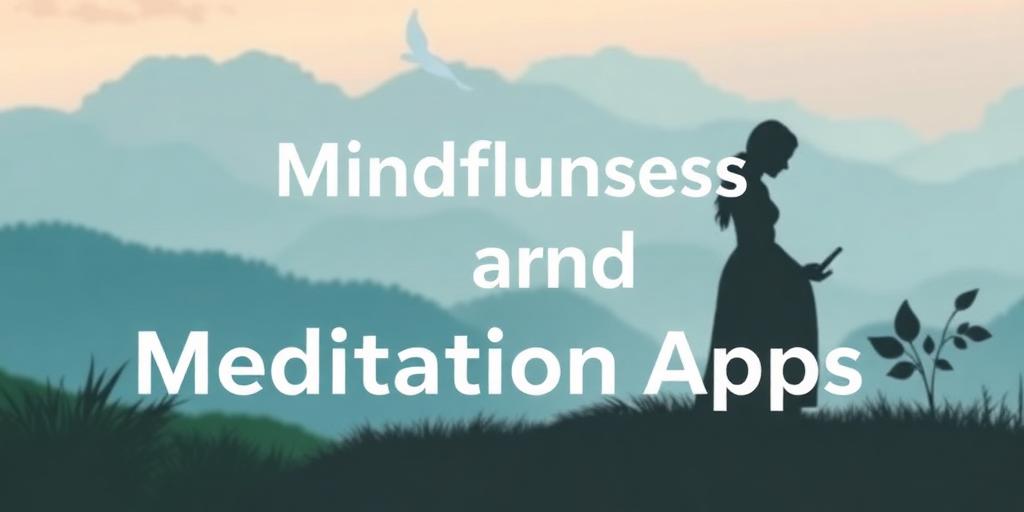The digital age has brought numerous advancements to our lives, and one of the most notable is the accessibility of tools that promote mental well-being. Mindfulness and meditation apps have seen a surge in popularity, reflecting a growing interest in practices that help manage stress, improve focus, and enhance overall psychological health.
The Rise of Mindfulness Apps
Mindfulness apps provide guided meditations, breathing exercises, and relaxation techniques that users can access anytime, anywhere. This convenience is a major factor in their widespread adoption. These apps cater to both beginners and experienced practitioners, offering a range of programs tailored to different needs and preferences.
Key Features and Benefits
- Guided Meditations: Structured sessions led by experienced instructors.
- Personalized Programs: Customized plans based on user goals and progress.
- Progress Tracking: Tools to monitor meditation habits and achievements.
- Variety of Techniques: Options including breathwork, body scans, and visualizations.
- Accessibility: Available on smartphones and tablets, making mindfulness practice easy to integrate into daily routines.
Why Are People Turning to These Apps?
Several factors contribute to the increasing interest in mindfulness and meditation apps:
- Stress Reduction: High levels of stress and anxiety in modern life drive many to seek accessible stress-relief methods.
- Improved Mental Health: Studies suggest that regular mindfulness practice can reduce symptoms of depression and anxiety.
- Enhanced Focus: Mindfulness techniques can improve attention span and cognitive function.
- Better Sleep: Many apps offer specialized meditations to promote relaxation and improve sleep quality.
- Convenience and Affordability: Compared to traditional therapy or in-person meditation classes, apps provide a cost-effective and convenient alternative.
Popular Apps in the Market
Several apps have emerged as leaders in the mindfulness and meditation space. Some of the most popular include:
- Headspace: Known for its beginner-friendly approach and visually appealing interface.
- Calm: Offers a wide range of meditations, sleep stories, and relaxing music.
- Insight Timer: Provides a vast library of free meditations and a supportive community.
- Ten Percent Happier: Features meditations and practical advice from leading mindfulness experts.
- Aura: Uses AI to personalize meditation recommendations based on mood and preferences.
The Future of Mindfulness and Meditation Apps
As technology continues to evolve, mindfulness and meditation apps are likely to become even more sophisticated. Future trends may include:
- Integration with Wearable Devices: Real-time feedback on physiological responses during meditation.
- AI-Powered Personalization: Highly customized programs based on individual needs and data.
- Virtual Reality (VR) Experiences: Immersive meditation environments to enhance relaxation and focus.
- Gamification: Incorporating game-like elements to make mindfulness practice more engaging.
In conclusion, the growing interest in mindfulness and meditation apps reflects a broader trend towards prioritizing mental well-being in our increasingly digital and fast-paced world. These apps offer accessible, convenient, and effective tools for managing stress, improving focus, and enhancing overall psychological health. As technology advances, they are poised to play an even greater role in supporting our mental well-being.









